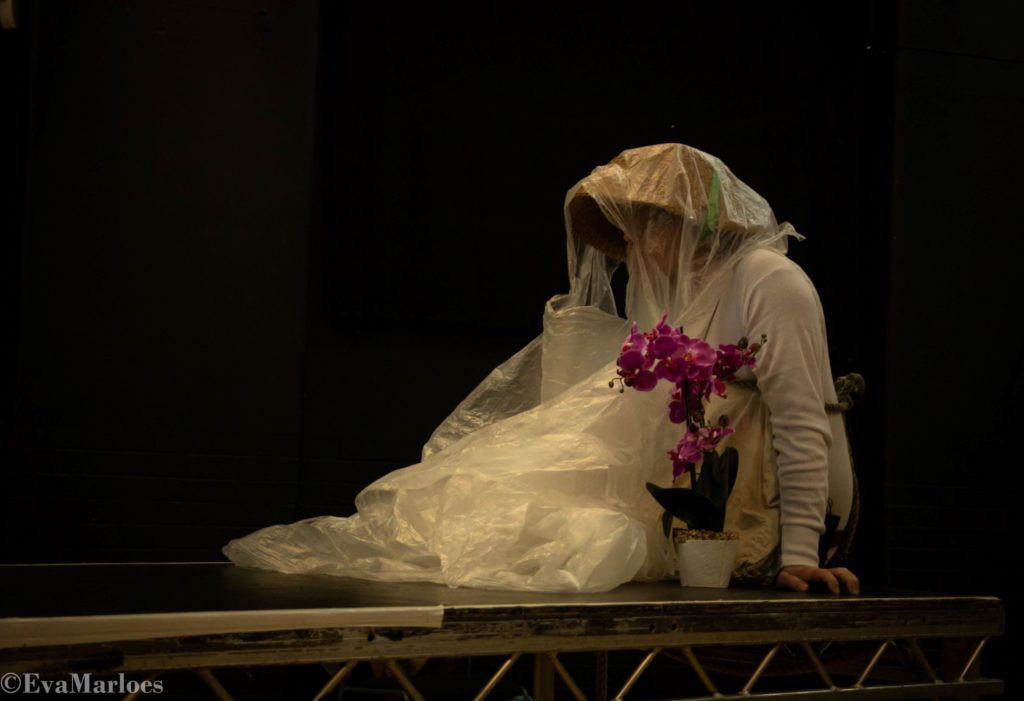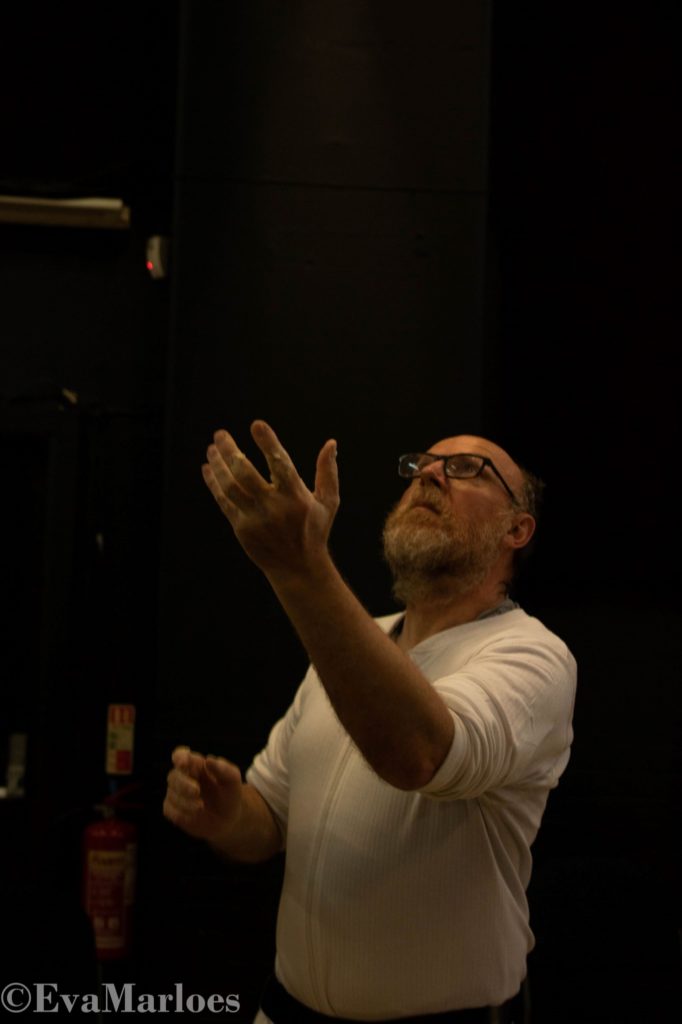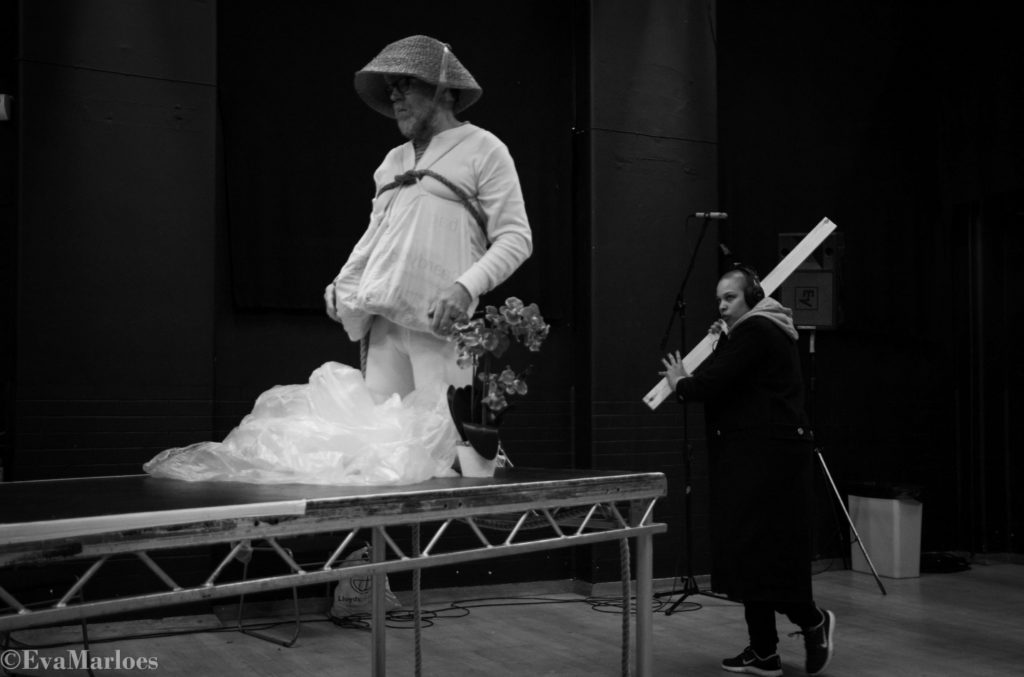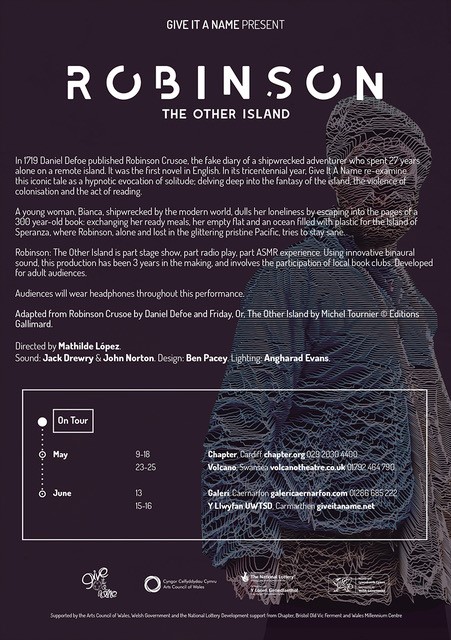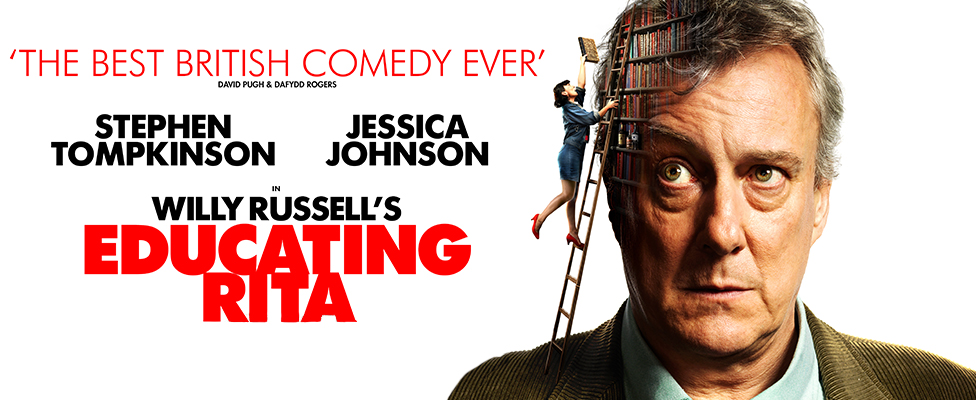
 (5 / 5)
(5 / 5)
Most will be aware of Educating Rita thanks to the multi award winning 1983 film starring Julie Walters and Michael Caine. I know this was my first introduction to the play and one which I was in awe of; the portrayal of these wonderfully different characters, the comedy, the literary irony and Rita’s yearning to change, to grow and to the be valued. Don’t we all feel like this at some point in our lives? Hence, Willy Russell’s Educating Rita will continue to be a success. At first, I wondered, why this play again? How can it be different now? And on the surface there weren’t any huge differences; no big scenic aplomb or special lighting effects but the issues and themes addressed are universal and perhaps particularly relevant in our current political climate; Frank despises the changes he sees in Rita once she’s been given an education; does he realise life can be much more enjoyable if you’re ignorant to it all?
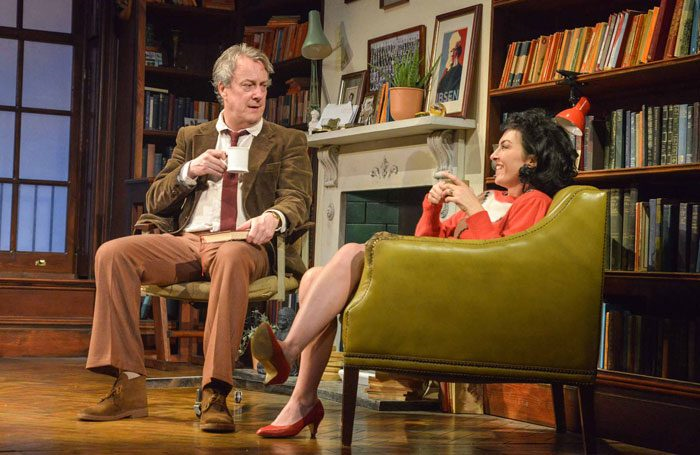
Although the play is not strictly an autobiographical piece, it does draw on Russell’s own struggle to get into education having left school destined to work in a factory for the rest of his life. Like Rita, Russell worked in a hairdressing salon whilst achieving an O Level in English Literature at night school. Rita’s tutor Frank turns out to be a frustrated poet and dedicated drinker who, although initially unenthusiastic about taking on an Open University student, comes to grow extremely fond of Rita and realises how much they can teach each other.
I cannot praise Stephen Tompkinson and Jessica Johnson highly enough. I often feel for actors who take on such well-known, beloved characters who have already been portrayed by some of the nation’s most loved performers (in this case Julie Walters and Michael Caine). However, Tompkinson and Johnson slip effortlessly into the roles; it’s as if they’ve been doing it for years. Johnson is reprising her role from 2017 at Gala Durham and it’s as if she was born to play it. Her comic timing is spot on, her accent never falters, and she perfectly transforms slowly throughout; reminiscent of Pygmalion, her body language and tone of voice very subtly developing as Rita makes her transformation into an educated woman. Tompkinson’s portrayal of Frank is to be commended also. He plays out the character’s constantly changing emotions perfectly and, in conjunction, doesn’t overplay the ‘drunk’; as an audience we warm to him rather than taking a dislike to him for his love of liquor.
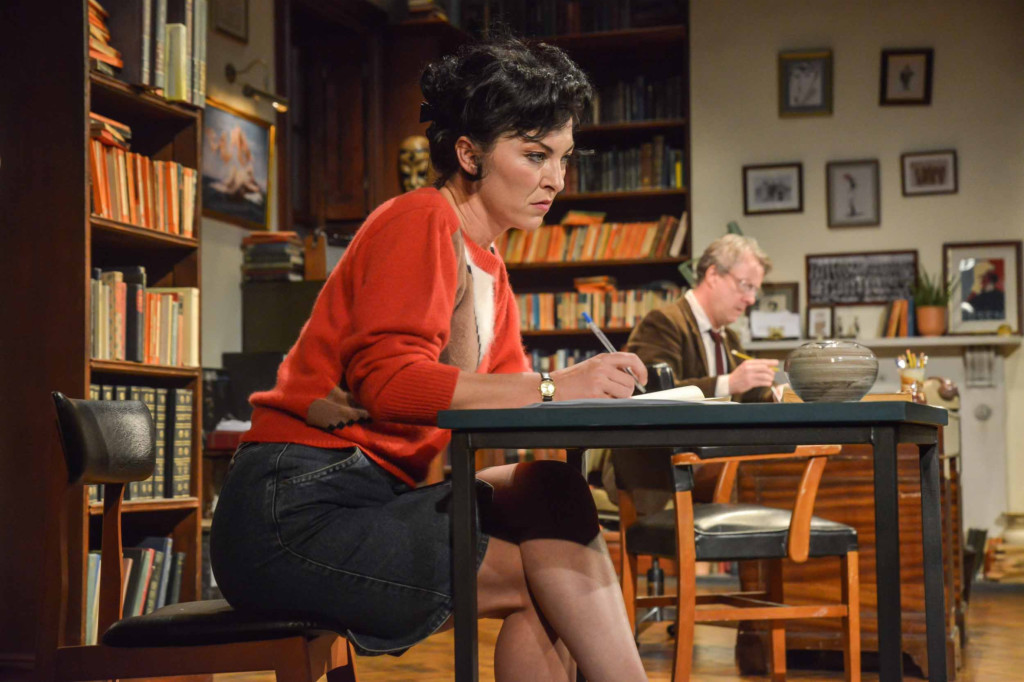
The set design is simple yet effective; the whole play set in Frank’s office at the university, filled with books, artwork and enough bottles of hidden alcohol to open a pub! The setting doesn’t change but Johnson does, and each costume change is dealt with, with ease (Rita has a lot of wonderful, of-the-era sweaters and dungarees!) Something else worth noting is the time between scene changes. There is an obvious effort to keep the action flowing and so we only ever see two full blackouts, one at the end of the first act and another at the end of the second act. This keeps us, as an audience, in the moment; time shifting implied by a drop in lighting, a costume change or delicate movement from window to desk.
Willy Russell really did write a hilarious, timeless piece of theatre in creating Educating Rita and Tompkinson and Johnson really have kept it alive, and with gusto! Educating Rita plays at Theatr Clwyd, Mold until Saturday June 1st, 2019 and goes on to play at several venues across the UK, finishing at the Darlington Hippodrome on Saturday August 17th, 2019.
May 20th-June 1st, 2019
Writer: Willy Russell
Director: Max Roberts
Designer: Patrick Connellan
Lighting Designer: Drummond Orr
Sound Designer: David Flynn
Cast includes Stephen Tompkinson and Jessica Johnson



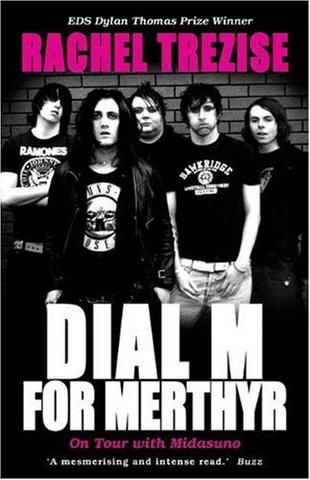
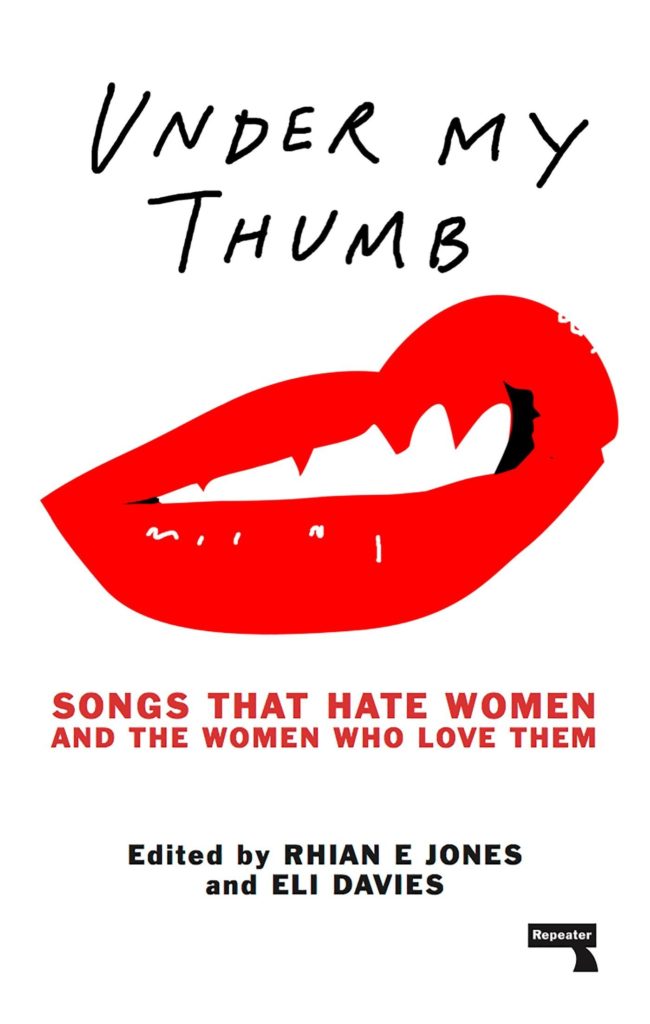
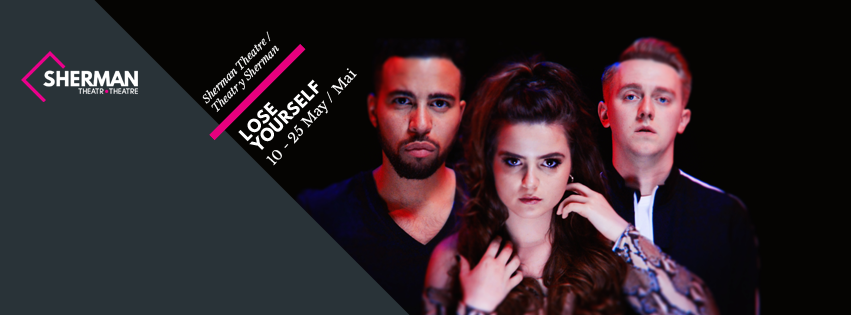
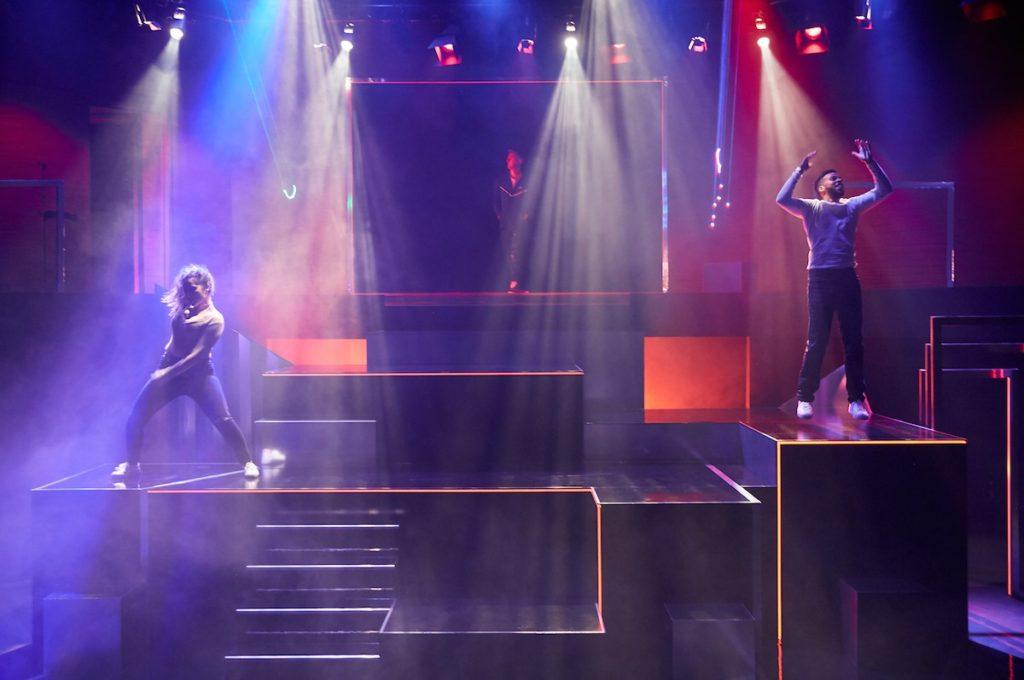


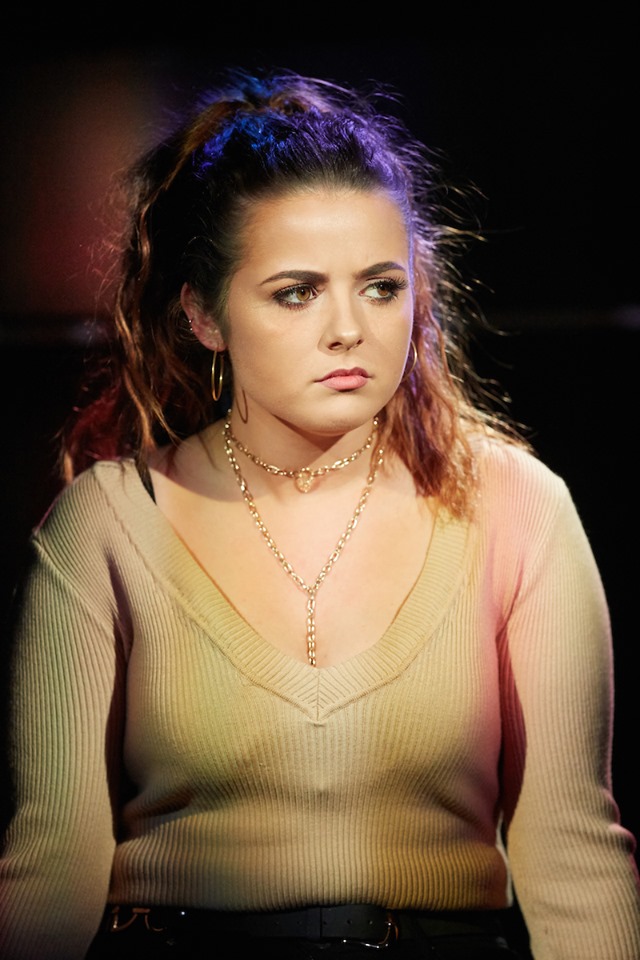
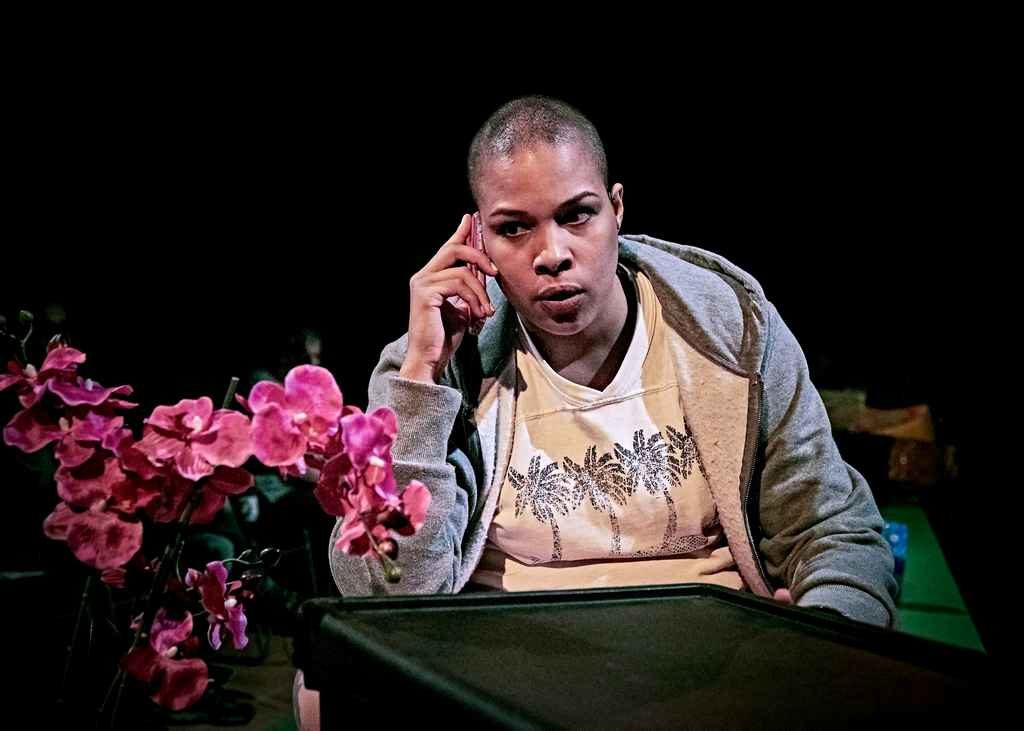
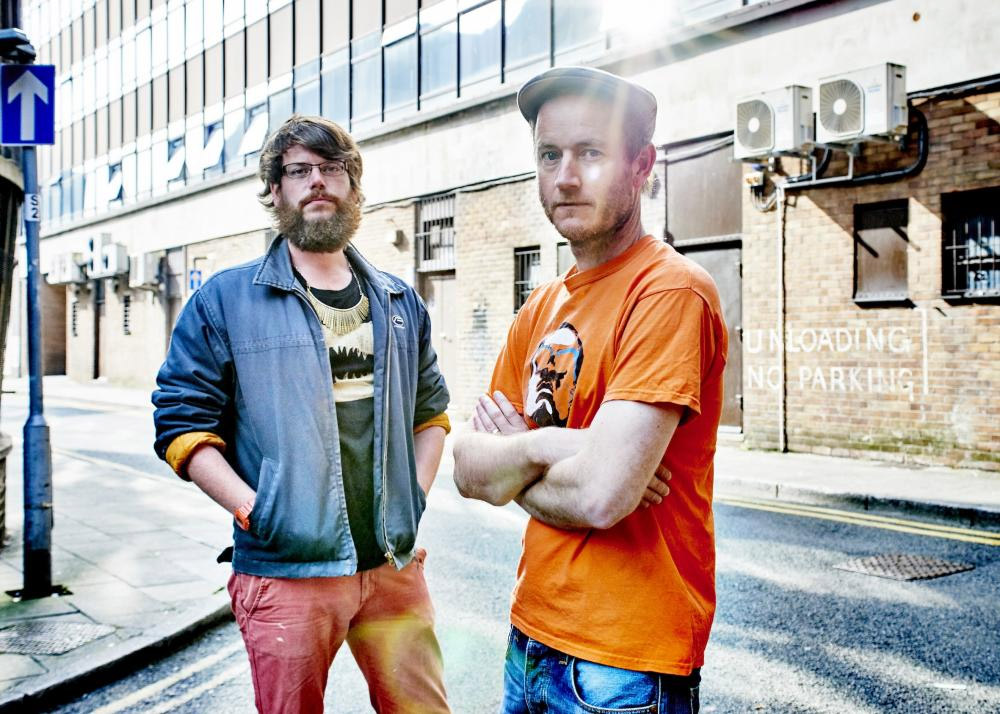

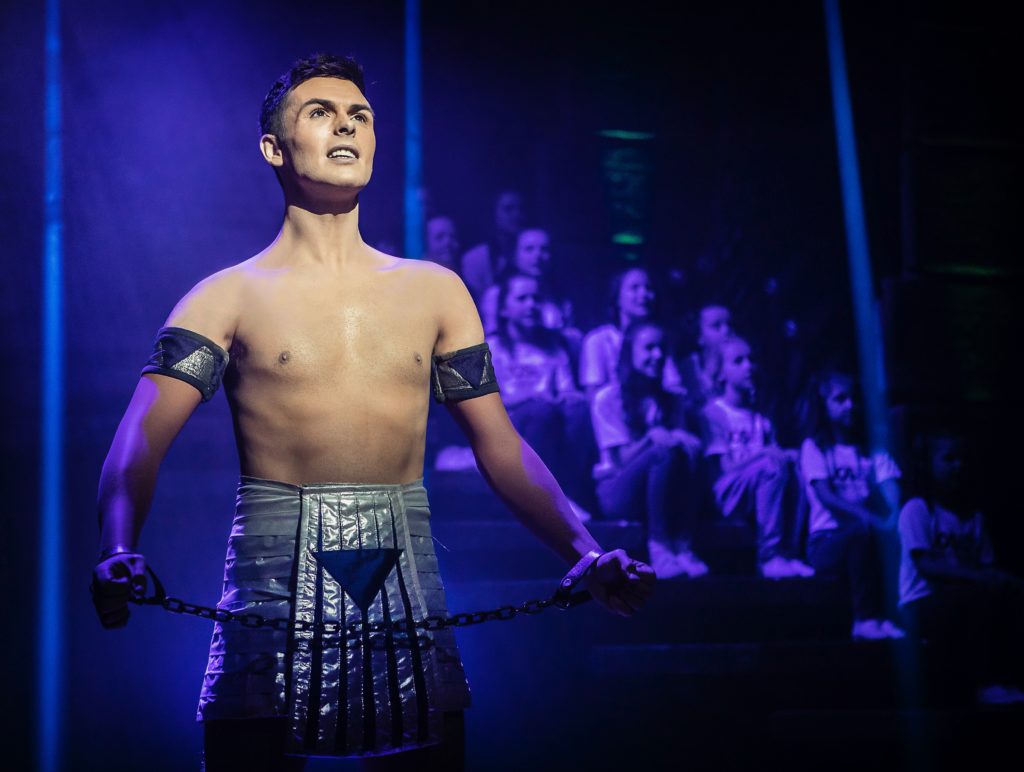
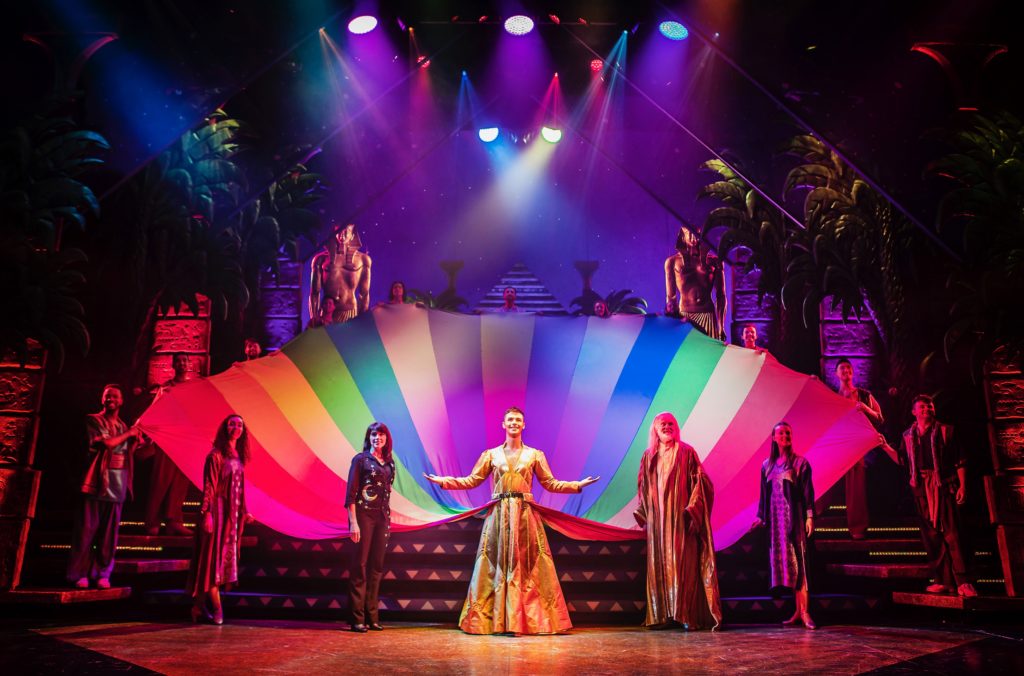
 (4.5 / 5)
(4.5 / 5)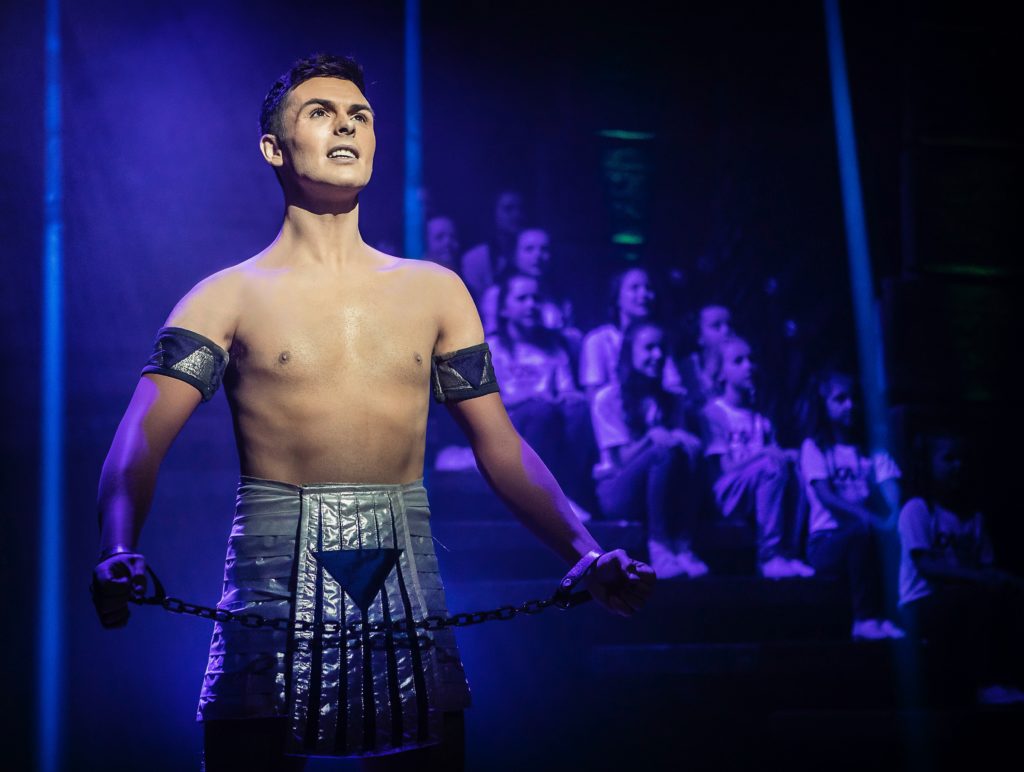
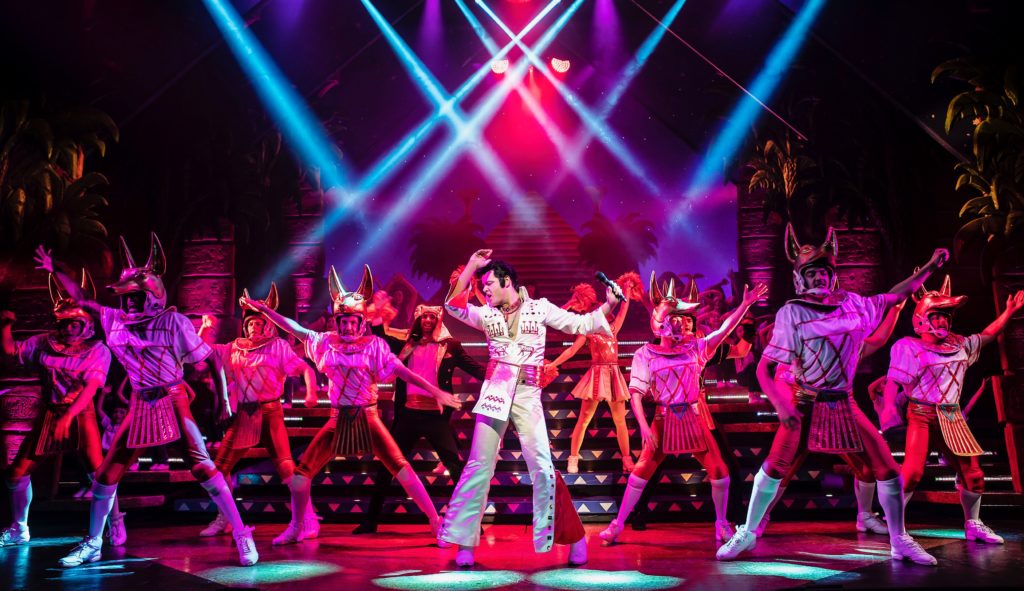
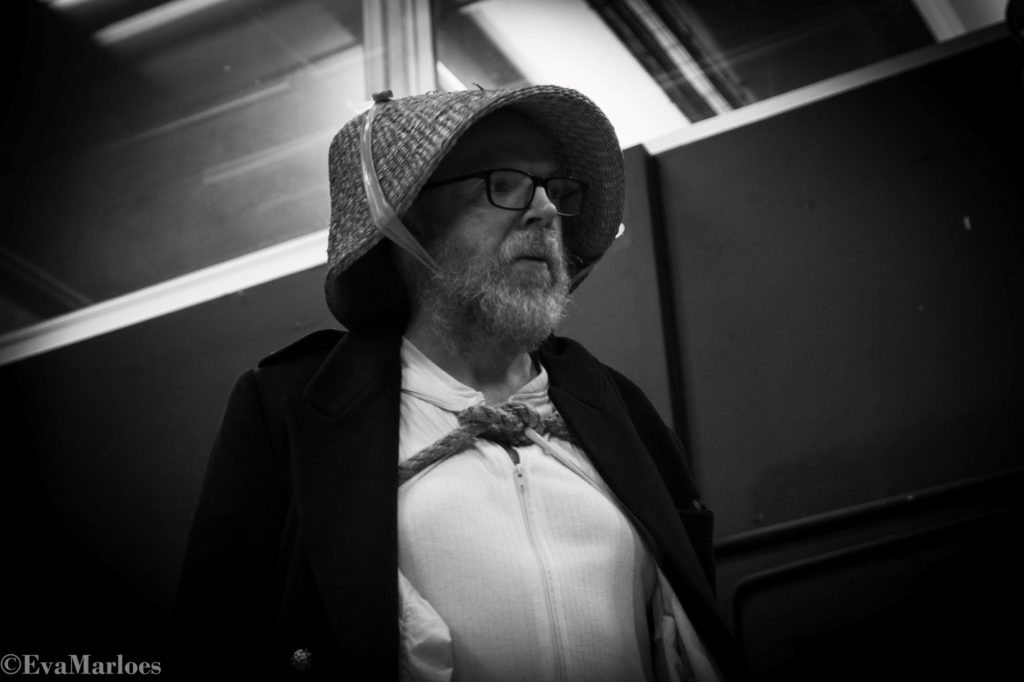

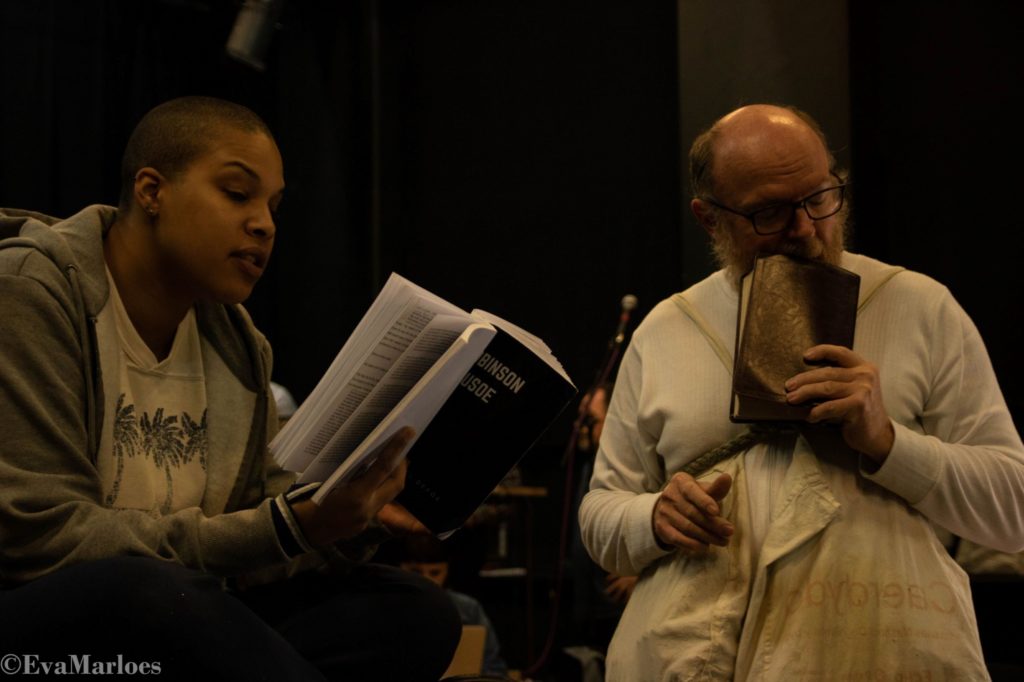
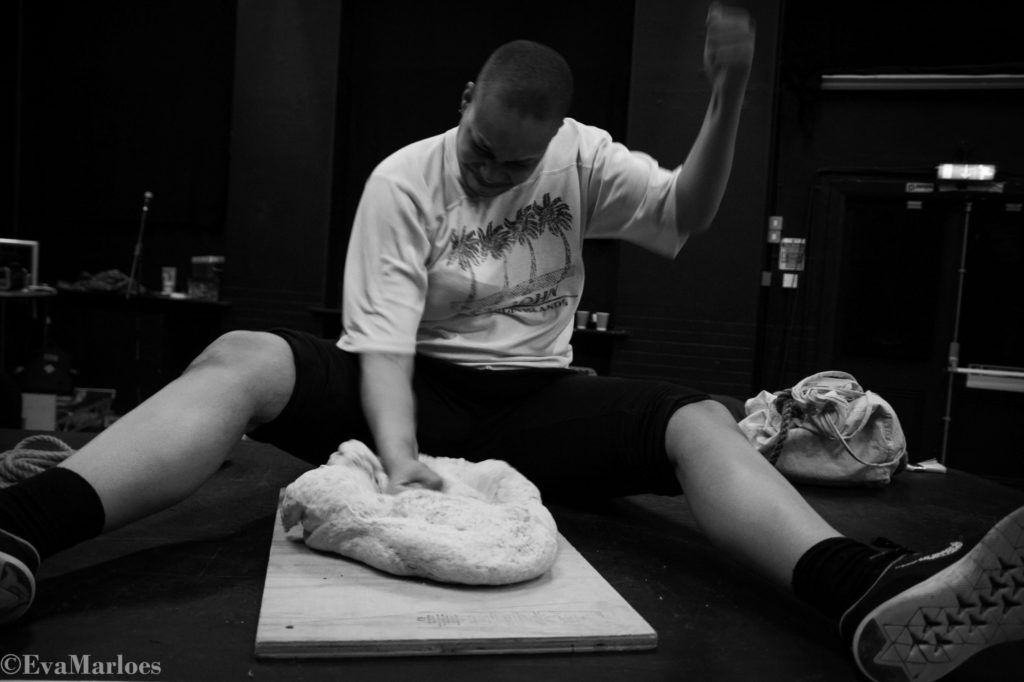
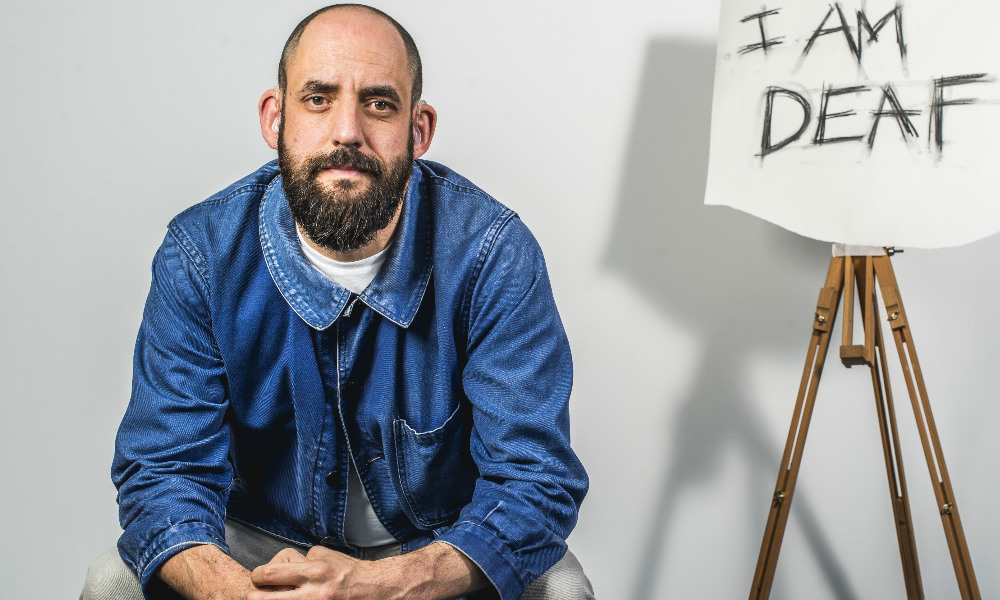
 (3.5 / 5)
(3.5 / 5)